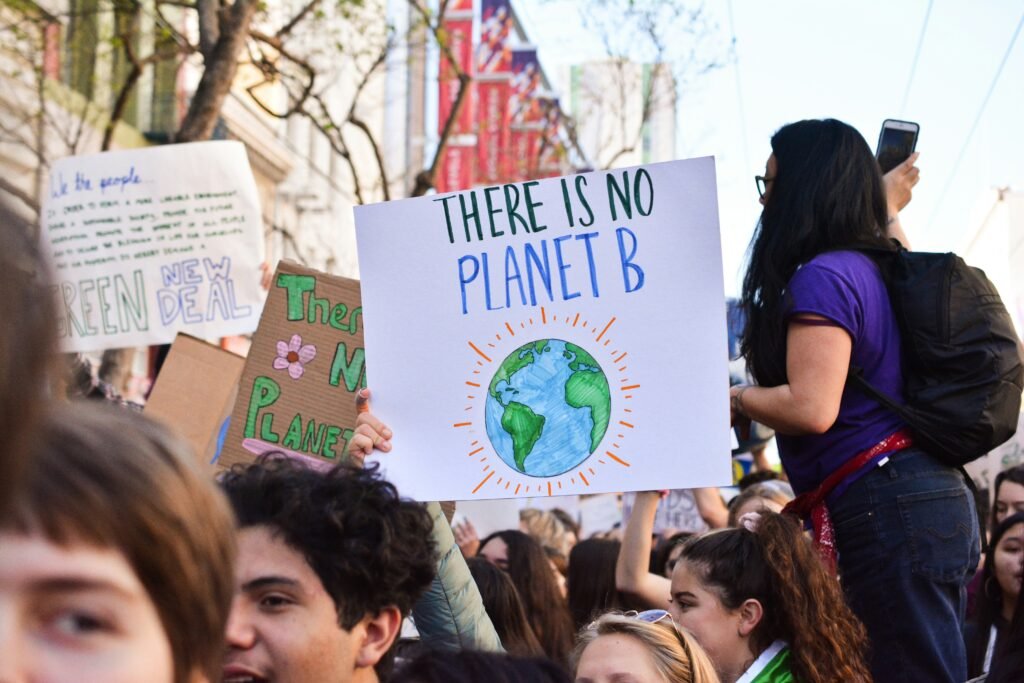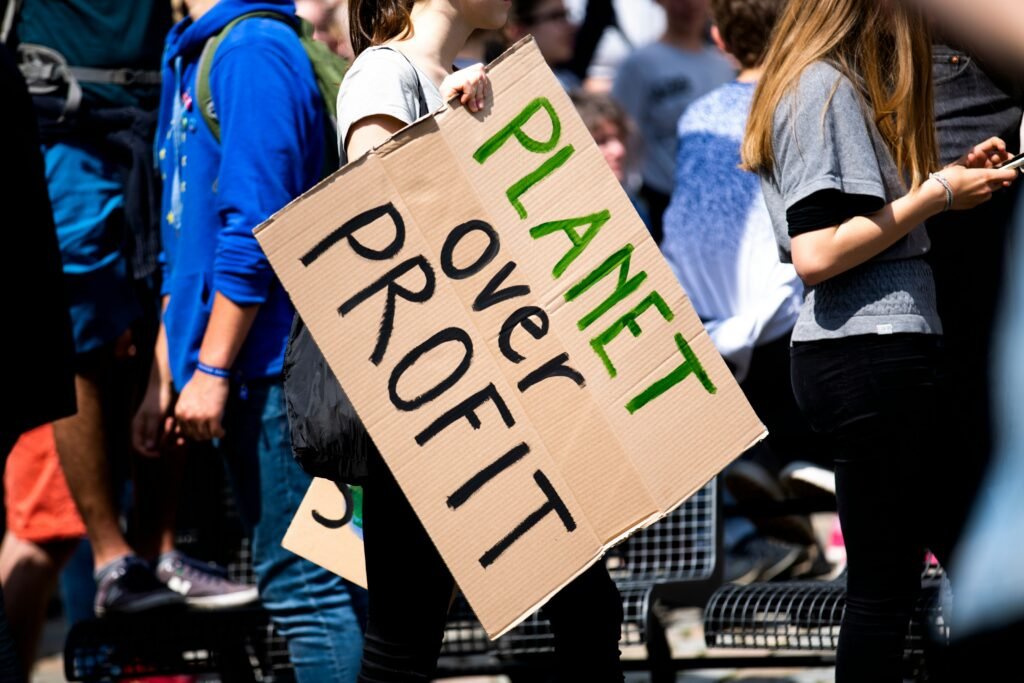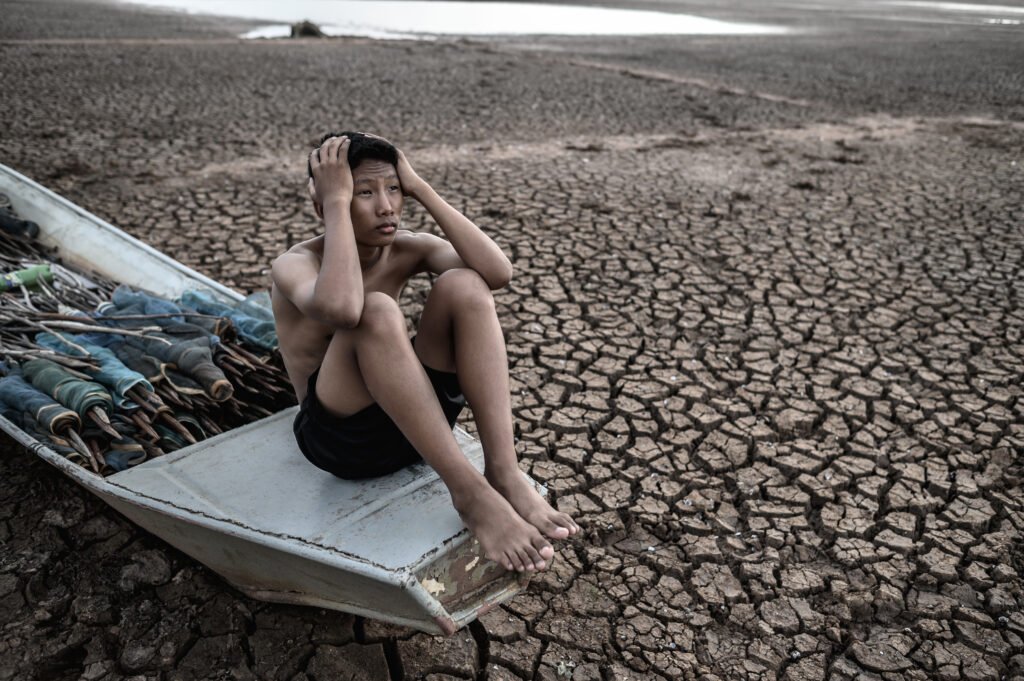As the wildfires spread across California in 2021, many youngsters reported feeling more distress and anxiety. A survey by The Lancet found that 59 percent of youth are gravely concerned about climate change. Greta Thunberg, a 16-year-old climate activist, was also a part of this eco-distress and talked about her struggles coping with climate anxiety.
Climate change is often regarded as the most significant risk to global mental health in the upcoming century. This increasing concern, commonly known as climate anxiety, is a profound mental health issue that is affecting millions of people worldwide.
According to a survey undertaken by the American Psychiatric Association, more than two-thirds of Americans are somewhat or extremely anxious about the impact of climate change on the planet, and more than half are anxious about its effect on their mental health.
So, it’s not just the young generation who is dealing with it, and soon, if not already, it will be a crucial factor affecting mental health, generally. Just imagine awakening each morning feeling an impending doom—not because of personal issues or work pressure but because of our planet’s constant degradation.

Regional Case Studies
Filho and his peers (2023) reviewed multiple case studies from the Pacific region, including the Federated States of Micronesia, Fiji, Kiribati, and others, showing that extreme weather events disrupt life-support systems, population livelihoods, and well-being. This disruption affects determinant factors such as food security, malnutrition, water security, vector- and water-borne diseases, and displacement, affecting the population’s mental health.
Another study discusses the vulnerability of older persons to climate anxiety. The authors highlight that climate change threatens the basic prerequisites for well-being, including clean air and water, food supply, and shelter security.
This is especially harmful to older persons, who are more susceptible to climate-related adversities, leading to high incidences of physical and mental health conditions such as shock, trauma, stress, anxiety, depression, post-traumatic stress disorder (PTSD), phobic impairment, substance use disorders, and increase in suicidality or aggression.
An interesting concept of “climate change ageism” blames seniors for climate change, negatively affecting their well-being. It notes the absence of legal protection for the elderly in international climate agreements. The authors advocate for a UN convention on the rights of older persons and emphasize the need to merge elder care and environmental sustainability in the face of a worsening climate crisis.
However, children are also at the most risk. A 2021 UNICEF report estimates that one billion children will be at “extremely high risk” due to climate change. This demographic is particularly vulnerable to chronic stress, which may increase their risk of developing depression, anxiety, and substance use disorders.
The Root Causes of Climate Anxiety
So, what’s fueling this surge in climate anxiety? Let’s delve into the main culprits:
Media Coverage and Scientific Reports
The media plays a significant role in shaping our perception of climate change. The incessant flow of news about escalating temperatures, melting ice caps, and extreme weather events can make us anxious and helpless, adding to our climate anxiety.
An article published in PubMed drew a positive correlation between media exposure and climate anxiety was reported in a study conducted on Italian university students. The researchers found that media coverage of climate change was among the primary factors influencing the level of anxiety experienced by participants.
Moreover, reports from scientific bodies detailing the dire consequences of climate change can also stoke climate anxiety. The feeling that governments are not doing enough to avert a climate catastrophe further exacerbates this anxiety.
Personal Experiences
Unlike other stressors that are often personal, climate change is more universal, chronic, and intangible, affecting people from all walks of life. Experiencing the effects of climate change firsthand, such as extreme weather events, can amplify anxiety.
The lack of effective risk perception and the attribution of extreme weather events to climate change are important factors that influence people’s decisions and behaviors related to climate change.
Humans are wired to respond more strongly to immediate, visible, and fast threats with clear personal impacts or caused by identifiable groups. Climate change, however, often lacks these characteristics, leading to a reduced sense of anxiety and urgency. (Dodds, 2021)
Coping and Resilience Amidst Climate Anxiety
Climate change, a daunting reality of our times, can often trigger feelings of anxiety and helplessness. However, it’s crucial to remember that we are not powerless in this situation.
Our ability to cope and our resilience can serve as powerful tools to navigate through this climate-induced anxiety. As research suggests, resilience can be fostered through maintaining a positive outlook, effective planning, and demonstrating flexibility in the face of adversity.
Consider the analogy of a sailor amidst a storm. Despite the crashing waves and howling winds, the sailor remains calm, adjusts the sails, and changes the course to navigate the storm. This is resilience.
In the context of climate change, the storm symbolizes the challenges we face – rising temperatures, increasing frequency of natural disasters, and more. However, just like the sailor, we too can adjust our sails and change our course. We can take proactive steps to mitigate the effects of climate change.
Advocacy and Action: Catalysts for Climate Change Mitigation

So, let this inspire you. Stand up for what you believe in. Your actions can make a difference. Remember, advocacy and action start with you.

In conclusion, coping mechanisms, resilience, and advocacy and action are essential tools in our fight against climate change. They help us navigate through the storm and drive change. So, exercise your resilience muscle and raise your voice. You have the power to make a difference.
Future Directions: Steering Towards a Sustainable Tomorrow

The bottom line
Climate change’s impact on psychological well-being and mental health is a crucial consideration for policymakers in developing strategies to mitigate and adapt to environmental shifts.
Fiona and her team underscores this, highlighting that while climate change is a significant global mental health threat, it also presents an unprecedented opportunity. By transitioning to sustainable practices, we can mitigate climate change’s effects and improve our mental well-being for future generations.
Our fight against climate change is not solely about environmental preservation; it’s also about safeguarding our mental health.
It’s essential to remember that sustainable practices are not just beneficial for the environment, but they also contribute positively to our mental health.
FAQs
What is climate anxiety?
Climate anxiety, also known as eco-anxiety, refers to the chronic fear of environmental doom and the distress caused by watching the slow and seemingly irrevocable impacts of climate change on the earth’s environment and being worried about the future for oneself, children, and future generations.
How does climate change affect mental health?
Climate change can lead to a variety of mental health issues, including anxiety, depression, post-traumatic stress disorder (PTSD), and feelings of loss and helplessness. The stress of experiencing or even anticipating the effects of climate change, such as extreme weather events and long-term shifts in climate, can significantly impact mental well-being.
How to deal with climate anxiety?
Reducing climate anxiety can involve several strategies, such as staying informed but setting limits on media consumption, engaging in community action or environmental advocacy, seeking support from like-minded individuals or groups, and practicing mindfulness or other stress-reduction techniques to manage feelings of anxiety.
Are certain groups more vulnerable to climate anxiety?
Yes, certain groups may be more vulnerable to climate anxiety, including young people, indigenous communities, residents of coastal or drought-prone areas, and those with pre-existing mental health conditions. These groups often face direct impacts from climate change and may feel a greater sense of urgency and vulnerability.
How can communities support individuals experiencing climate anxiety?
Communities can support individuals by fostering climate resilience through education, providing mental health resources specifically addressing eco-anxiety, creating spaces for community members to share their experiences and concerns, and promoting active participation in local environmental actions to empower individuals and reduce feelings of helplessness.
Sources
- https://www.psychiatry.org/news-room/news-releases/climate-poll-2020
- https://www.health.harvard.edu/
- https://www.colorado.edu/health/blog/climate-anxiety
- https://www.bbc.com/news/world-europe-49918719
- https://www.weforum.org/agenda/2022/10/chart-shows-global-youth-perspectives-on-climate-change/
- Maran, D. A., & Begotti, T. (2021). Media exposure to climate change, anxiety, and efficacy beliefs in a sample of Italian university students. International journal of environmental research and public health, 18(17), 9358.
- Dodds, J. (2021). The psychology of climate anxiety. BJPsych Bulletin, 45(4), 222-226
- Charlson, F., Ali, S., Augustinavicius, J., Benmarhnia, T., Birch, S., Clayton, S., … & Massazza, A. (2022). Global priorities for climate change and mental health research. Environment international, 158, 106984.
- Leal Filho, W., Krishnapillai, M., Minhas, A., Ali, S., Nagle Alverio, G., Hendy Ahmed, M. S., … & Kovaleva, M. (2023). Climate change, extreme events and mental health in the Pacific region. International journal of climate change strategies and management, 15(1), 20-40.










Glad to be one of the visitors on this awesome site : D.